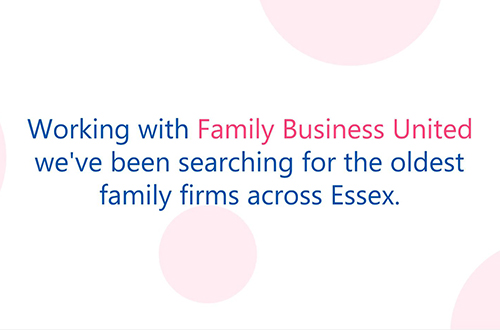Multi-generational businesses are extremely common in the UK and Essex is no exception. In fact, according to a report prepared by Oxford Economics less than five years ago, 85% of family firms in the UK plan to remain family-owned ‘for the foreseeable future’.
However, simply intending to remain family-owned does not always lead to easy decision making regarding how best to pass down the business. That issue will turn on a number of factors, including the tax implications, but importantly whether:
- The older generation are ready to pass control of the business, both day-to-day and strategically, down to the next generation
- The older generation want to receive full or partial payment for the value of their equity in the business
- The older generation have sufficient capital and/or income sources available to them for their retirement
-
All of the older generation’s children are working in the business or if there are children outside the business that they are keen to ensure also share in a fair proportion of their estate
- There is no natural heir to owning the business but where it has historically passed down the family and culturally being bought by a larger business may not be suitable for it.
Depending on the answers to those key questions, and the particular weighting that a business owner gives to them at that point in time, a transaction with the purpose of succession can potentially take place.
There are a number of options that could be considered. Although less common than simply gifting the business,
management buyout (MBO) or share buyback
,
growth and freezer shares
are becoming more popular in family business scenarios.
The broad premise is that the older generation protect their existing equity in the form of freezer shares entitled to a preferred amount of value on an exit event, and in some cases a preferred dividend coupon on that value and possibly voting control being retained as well. The future growth then belongs to the next generation.
Growth share planning might be appropriate when there is a desire not to pass down too much equity too early, but perhaps the older generation do not need or want any equity from the business as yet.
Alternatively they may want to retain voting control and stay actively involved in the business, or perhaps the business cannot easily raise a large capital payment for their equity, and instead the solution is to give the older generation a right to an income on those shares. For those considering inheritance tax (IHT) implications, it is worth noting that the freezer shares can potentially qualify for 100% relief from IHT, whereas cash or an IOU would not.
Employee Ownership Trusts (EOTs) may also be a less common but suitable option for family business owners to consider. EOTs have gained a lot of popularity in recent years and where a natural family successor doesn’t exist and the cultural change of a sale to a larger third party may not be suitable, EOTs may present a tax-efficient, viable option.
To discuss your particular circumstances in more detail and evaluate the most suitable option for you, please contact James Boustead .
If you have any questions about the above, or would like more information specific to your circumstances, please enter your email address below and we will get in touch:

















